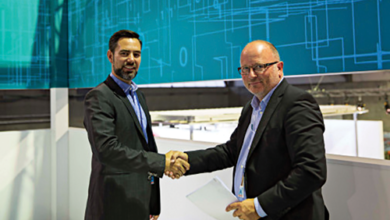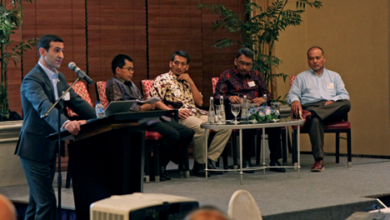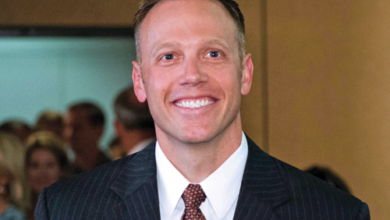Perspectives: Erin Welsh, Seadrill: Offshore work is not a career stepping stone but provides valuable opportunities for hands-on work, making real changes
By Kelli Ainsworth, Editorial Coordinator

For Erin Welsh, Technical Superintendent-Well Control Equipment at Seadrill, what started as a stepping stone became the foundation for a career.
She attended the Colorado School of Mines starting in 1992 and majored in engineering, with a specialty in mechanical engineering. Her intention was to design equipment.
As a student, she interned with a company that designed propulsion systems for moving materials in warehouses. “It came to light there pretty quickly that I had all the theoretical knowledge, but I needed more practice with the practical application of what I knew,” she said. She realized that she needed to understand what it took to manufacture, repair and use the product as intended before she could actually design good products of her own.
The desire to build her practical skills in a hands-on environment, combined with a touch of wanderlust, prompted Ms Welsh to focus her job search efforts toward the oil and gas industry. After graduating in 1995, she began a three-year training program with Sedco Forex, a company that later merged with Transocean. “The premise was that they put you straight out into the field and you did a little bit of preliminary training, and then you work your way through every position offshore, with the intention that they were grooming you to be onshore support personnel, and you would know what everyone was experiencing out there,” she said.
Rather than preparing her to work onshore, however, the program made Ms Welsh realize how much she loved working offshore, where she was able to fix and troubleshoot the equipment. “As a mechanical engineer, I loved being immersed in an environment in which improvement opportunities are within your power,” she said. “I really like fixing things, and fixing it for good. Not just today but forever.” In particular, she found that she enjoyed working on BOPs.
Instead of completing the training program so she could move into a support role, Ms Welsh exited the program early and applied for a job that would keep her on the rig full time. “At first I thought of the offshore world as a stepping stone, but the challenges never stopped coming, so this work has remained my preferred occupation,” she said. In 1997, she was hired as an assistant subsea engineer at Sedco Forex, working primarily on a semisubmersible offshore Brazil.
From there, Ms Welsh was promoted to Subsea Supervisor in 2000 and then to Senior Subsea Supervisor in 2002. She started with Seadrill in 2010, serving as a roving superintendent overseeing several rigs. When a rig’s BOP is having problems, she or other roving superintendents travel to that rig to assist in maintenance operations.
Additionally, she performs audits to evaluate the effectiveness of maintenance programs and equipment conditions. She has also assisted in surveillance, overseeing factory acceptance of BOPs that are new or being overhauled. “Taking this job with Seadrill and getting promoted to superintendent has allowed me that extra opportunity to take it a step further and not just resolve an issue on one rig but resolve it for everybody,” she said.
Through her work, Ms Welsh has also been able to effect change in the design of BOPs by giving feedback to OEMs. It makes sense that end users of a piece of equipment have the most direct perspective on what does and does not work, or what changes might make it more effective and efficient. Generally, she added, OEMs have been receptive to such feedback. When feedback doesn’t result in an improvement to the equipment, it’s often because the right kind of feedback wasn’t provided. “The breakdown can happen when we’re not giving quality data back to them,” she said. “So we have to work really hard on making sure that we’re getting consistent data back from people, that it’s the right information in as much detail as possible so that when we identify a problem, we identify the right problem.”
Over her career, she’s learned that it’s important that supervisors like herself stress the importance of maintaining good inspection notes and giving maintenance personnel the vocabulary to express what’s wrong. “We can’t just talk about something not working. You have to have more detail for action to be taken.”
Ms Welsh is also driving improvements to BOP equipment through her work with the API Standard 53 committee. “I think the specifications and standards that API produces are so impactful to our operations that there was no way to not get involved in that or to not influence those specifications as an end user,” she said.
More recently, Ms Welsh joined IADC’s efforts on the regulatory front, as a part of the team of industry professionals who formulated a response to the proposed Well Control Rule from the US Bureau of Safety and Environmental Enforcement. While there are industry concerns around this particular regulation, on the whole, the industry should take any opportunities it can to work proactively with agencies to develop regulation, she said. “We want it to be workable, sensible and something that will actually add value and safety to the operation.” DC





Impressive I didn’t know how envied your job was.
God Bless You Erin. Stay safe